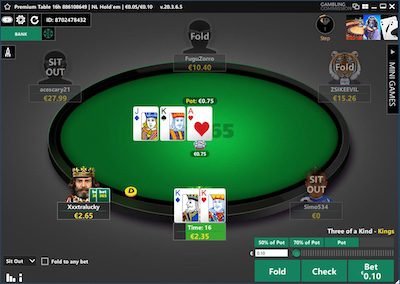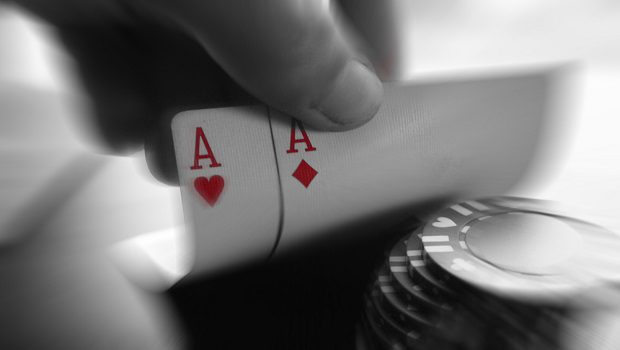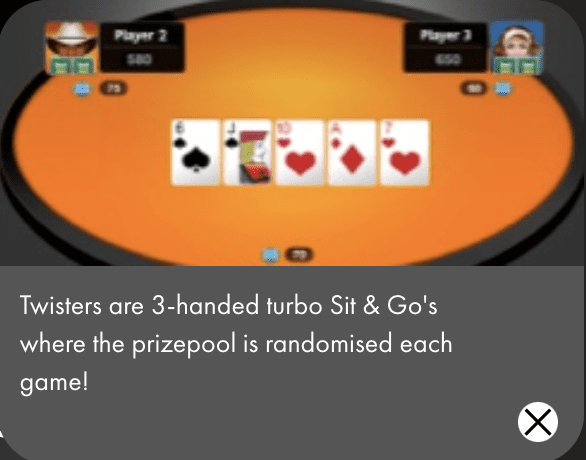

Nobody likes to be the Fish or the Donk at the poker table, however, for beginners that is an all-too-common feeling. But with these ten great tips to improve your poker game, you’ll hopefully start playing better and maybe begin cashing out more often!
Of course, following these tips to improve your poker requires time, patience and effort. Improvement will not be an overnight thing. However, by following these tips, you can improve your poker game markedly in a short space of time.
And, it will help you cut out many of the rookie mistakes that you may be making at the table, which is helping your opponents and hindering you!
So let’s begin our list of ten quick tips to improve your poker game for beginners, with one key piece of advice.
You may know the rules of poker, especially Texas Hold’em. You can know the hand rankings and how the betting rounds proceed. That’s all fine and dandy, but knowing how to play poker is one thing. Understanding how you should play is entirely different and it is this area where beginner players struggle.
We don’t presume to know enough to tell you about how you should play. Instead, there are plenty of poker experts who offer fantastic guidance for beginner players through their poker books and guides.
Reading up on some of the guides outlined below is a great way to ride on the back of these superstar players and utilise some of the tactics and tips that made them successful.
Some great poker books for a starting point include:
Remember too, nowadays, you can also get guidance in the form of Poker Podcasts or YouTube Channels. These can prove to be an accessible source of information if you cannot find the books listed here.
Honing your poker strategy is the first step to playing better. But outlined below we’ll show you some more tips you can put into place immediately too, without having to reference the books.
By understanding poker, its terminology, and its strategy and following the guidance of some of the best players in the world, you build yourself a frame of reference, from which the ensuing tips can all be used much more effectively when trying to improve your poker game.

One of the biggest mistakes a poker novice makes is to play too broad a range of hands. Whether this is simply because they prefer to play a more loose, aggressive game, or simply a newcomer’s enthusiasm getting the better of them, you can radically improve your chances of winning hands by only playing premium pocket cards.
Sure, there may be a time when you fold a three and six offsuit and the flop turns up two sixes and a three. But it is almost always the right call to fold weaker hands like this. That’s not bad play. It is keeping the odds in your favour. Folding at the right time is as important as knowing when to bet!
By shortening your range, you are increasing the likelihood of winning when you do play and decreasing the times when you play that three and six offsuit and it only leads to a loss of chips.
The biggest mistake a beginner player will make is when they have committed a significant amount of money to a pot, but suspect that they may not hold the strongest hand against one or more opponents.
A novice player may likely call “all-in” at this point as they feel they have committed so much to this pot, they may as well play the hand to an inevitable losing conclusion.This is a bad call.
If you suspect at any point in a hand that you are behind, or worse still drawing dead, cut your losses and fold. Don’t be tempted to bluff (see Tip 4 below), cut your losses and stay in the game.
Many a tournament has been won by a player who lost chips and almost went out, but bounced back to win the top prize. Remember, you can’t win a tournament if you do not have any chips.
Hollywood miracle poker happens only in the movies. You are not going to bluff any half-decent player player holding a strong hand, so why even try? Novice poker players problems often stem from bluffing too often, or making a bluff at the wrong time, such as when it is not credible.
There is a skill to bluff well, which you will learn about in the books mentioned in Tip 1. For the time being, keep it to an absolute minimum until you have a clear frame of reference regarding when a bluff can be put to good use and be most effective.

Do you know how many outs you have if you are chasing an inside straight at the table? Do you know what the probability is of you hitting a club to complete your flush draw on the river? What are the chances of landing another 8 from the pack to add to the two you hold in your hand?
For beginners, the answer to these questions will be “I don’t know” or “I’m not sure” and of course, this means you cannot make the right decision every time based on the statistical probability of your hand becoming a winner.
Learning some of the basic mathematics in poker, as outlined above, can massively help you understand just how good, or slim, your chances are of landing the card you need on the flop, but especially on the turn or river.
As a novice player, it is easy to focus on the strong cards you have in your hand and not pay attention to the weaker card you hold. For example, if you hold an Ace and a Five of hearts, and the flop reveals another ace, you are in a strong position. But so too is another player who may hold an ace.
If you both go to the showdown and have the pair of aces, and the five cards showing reveal a pair of tens alongside little else, then with the ace in hand for both players, it will be the kicker card that decides the hand.
Now if the community cards hold the highest kicker, you will split the pot. However, if your opponent has a high kicker and you have a low one and the community cards don’t help you out, you will lose the pot. A kicker can be hugely important in those closely contested hands.
Freeroll poker is a real benefit to new players. Admittedly, the betting early on may be unrepresentative of how cash tournaments people have paid to enter play out, but regardless of that, they offer a very good way to gain vital tournament poker experience, without having to spend a penny of your bankroll.
Playing in Freeroll events is a great way to put into practice some of the strategies and skills you have acquired by following the tips here and it won’t cost you a penny to improve your poker.

There’s lots of different types of poker games you can play with Texas Hold’em. This can include lengthy tournaments which can take hours or even days to run to a conclusion; cash table games which you can play for as long or as short a time as you like and of course, there are the faster variants of poker, such as Six Max games, or Twister Poker, which can be completed in a matter of minutes.
By trialling different types of poker games and tournaments, you will eventually come to understand which form you are best at and which you most enjoy. This will help you improve your poker in several different types of games.
A fast way to lose money is to let what happens at a poker table affect you negatively. If you play emotionally because you feel you have been unlucky or are just irritated at how the game has gone, then you are playing on tilt. This is never a good thing.
Players on tilt are far more prone to making poor decisions as they chase their losses as they feel poker or another player has done them an injustice. They’ll start playing a much wider range of hands, being far more aggressive when betting or even throwing all their chips in on the next hand in exasperation.
Tilting is a poker player's worst enemy. So play calm and collected and remember some you win, some you lose, but playing angry tilts the balance in favour of losing more often! You won't improve your poker playing angrily!
Many top poker sites now offer a hand-by-hand review of how a tournament or session at the cash tables has transpired. These are a valuable resource you can use to evaluate how you play, especially if you have done a little reading on poker as suggested in Tip 1.
By reviewing your play, you can identify where you made the right calls and, more importantly, where you made the wrong ones. Analysing this data, you can learn from your mistakes, so you are less likely to make them again. It is a sure-fire way to help improve your poker.
If you would like to sign up with a top-rated online poker site with the intention to improve your poker skills then bet365 Poker is a good choice. The site offers a wide variety of games suitable for beginners, as well as regular freeroll events, Twister Poker and much more besides!
Always remember to gamble responsibly.
Check out bet365’s Safer Gambling page for more details.
#AD Bonus Referrer Code is an affiliate of the brands we promote throughout this site. While we strive to maintain accuracy throughout our content, we do receive compensation for this promotion.
© 2025 BonusReferrerCode.com – All Rights Reserved
Worried about your gambling? When the fun stops – STOP!